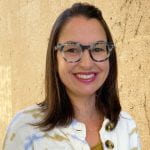Teaching science in a way that includes and engages all learners can be challenging for educators, but a new framework developed by the Institute for School Partnership at Washington University in St. Louis (ISP) provides criteria for equitable lesson development in elementary science.
A team of researchers and practitioners identified six categories that must be considered when developing equitable lessons: accessibility, relevance, rigor, representation, and a focus on students’ ideas and communities.

“These categories were identified by drawing on sociocultural and cognitive theories of learning,” said Rachel Ruggirello, ISP associate director and co-author of an article about the framework which was published in Science and Children, Volume 61, Issue 1. Along with a look at the research behind the framework, the article, “A Framework for Equitable Lesson Development: Designing instruction to support meaningful, relevant, and engaging learning experiences for all students,” features a sample lesson from the ISP’s mySci program.

A kit-based, standards-aligned science instructional resource used by 4,700+ teachers, mySci reaches 72 percent of K-5 students across the St. Louis region.
“Given the program’s wide reach, it is critical to attend to equity in designing mySci materials so that teachers can adapt lessons for students across a spectrum of needs and experiences,” adds Alison Brockhouse, article co-author and ISP research and evaluation associate.
A workshop on this Framework will be presented at the National Science Teaching Association (NSTA) National Conference in Denver, Colorado, in March 2024.